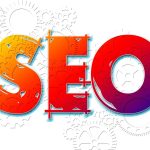On-page optimization is a key aspect of search engine optimization (SEO). It involves optimizing your website structure, content, and metadata to improve your website’s visibility and ranking in search engine results pages (SERPs). This article will explore the key factors that contribute to effective on-page optimization and provide some tips on how to optimize your website for search engines.
Website Structure
One of the most important aspects of on-page optimization is your website’s structure. A well-structured website is easy to navigate and helps both users and search engines to find and understand your content. Here are some tips to optimize your website structure:
- Use a clear and simple URL structure: Your website’s URLs should be intuitive and easy to read. Avoid using complicated URLs with long strings of numbers or symbols.
- Use header tags: Header tags (H1, H2, H3, etc.) help to organize your content and make it easier for users and search engines to understand the hierarchy of your pages.
- Optimize your navigation: Make sure your navigation is clear and easy to use. Create a clear hierarchy of pages and use descriptive labels for your navigation links.
- Use internal linking: Link your pages together to help users and search engines navigate your site. Internal links can help to distribute link equity and improve the performance of your pages in search results.
Content Optimization
The content on your website is crucial for SEO. Here are some tips for optimizing your content:
- Use relevant keywords: Include relevant keywords in your content, but avoid keyword stuffing. Use keywords naturally and make sure that they are relevant to the content of the page.
- Create high-quality content: Your content should be informative, engaging, and offer value to your readers. High-quality content is more likely to be shared and linked to, which can improve your website’s authority and ranking in search results.
- Use descriptive headings: Use headings to break up your content and make it easier to read. Descriptive headings also help search engines to understand the content of your page.
- Use images and video: Use images and video to supplement your content and make it more engaging. Use descriptive alt-text for images to help search engines understand the content of the image.

Metadata Optimization
Metadata is information that describes your website and its content. Here are some tips for optimizing your metadata:
- Use descriptive title tags: Your title tag is what appears in search results and influences whether users click through to your website. Make sure your title tags accurately describe the content of your page and include relevant keywords.
- Use meta descriptions: Meta descriptions don’t directly impact rankings, but they can influence whether users click through to your website. Make sure your meta descriptions accurately describe the content of your page and are engaging for potential visitors.
- Use schema markup: Schema markup is code that helps search engines understand the content of your page. Adding schema markup to your website can help to improve your website’s visibility in search results.
In conclusion, on-page optimization is essential for improving the visibility and ranking of your website in search results. By optimizing your website structure, content, and metadata, you can create a website that is easy to navigate, informative, and engaging for users, and optimized for search engines.






Leave a Reply